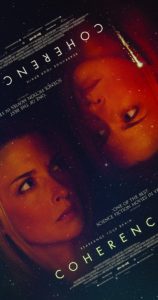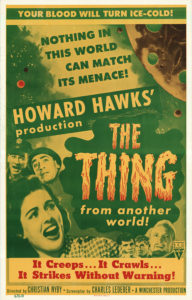A single death is a tragedy; a million deaths is a statistic.
That quote is often attributed to Soviet dictator and mass murderer Stalin, though it should be noted that the concept vastly predates him and there is scarce documentation that he ever actually said it. Setting aside the question of attribution there is an undeniable truth to the sentiment and it has important relevance to those who craft fiction.
I would argue that the reason the one death is a tragedy and the million are emotionally neutral is not because the numbers involved make it impossible to grasp but because one person we can know, one person can be real to us while a million will always occupy that void space as hypothetical people. People we meet are more real than one we only her about second hand and crowds are less real as people than individuals. So how does this apply to fiction?
You may have a character or characters that you would like the reader or audience to have sympathy for, even if they have done utterly reprehensible things. If they have murdered or abused people you can preserve that ability for the reader to still have sympathy and empathy but keeping their victims in a hypothetical state.
Consider Gollum in The Lord of the Rings. Many readers find Gollum’s condition tragic and the character himself quite pitiable even after watching him murder his own cousin for the One Ring, they still can find a great well of sympathy for the twisted, tortured character. However when Gandalf is recounting Gollum’s story to Frodo one detail he mentions slides past many a person, refusing to stick in their memory. Gollum stole infants from cribs and ate them. All is his meals exist as hypothetical babies. We never see him raid the cribs, we never see him bash out their brains as he does with his fish, and we never actually see him feeding. I think if we had there would be very few who could muster sympathy for the evil beast.
Consider also the fugitive replicants in Ridley Scott’s masterpiece, Blade Runner. Their plight is one that is engineered to create sympathy. They are genetically created slaves, labor, combat, and sexual slavery being their only reason for existence and to make that life ever more tragic it is short, just four years and then death. Of course we want to feel for them when they make a break for freedom and confront the man who forced this terrible life up on in hopes of winning at least a few more years, but again we are comforted by the fact that their escape takes place off-screen and their victims are also safely hypothetical. In the briefing Deckard receives from Bryant we are told that the six ‘jumped a shuttled and killed twenty-three people.’ No more details than that but think about that, six people killed twenty-three. They will not pull that off if the 23 are armed and combatant, but they can if they are civilians on a shuttle flight. Imagine watching the scene as the six replicating slaughter the civilians, perhaps shoving some out the airlock to die of exposure to vacuum. After watching such an emotionally traumatizing scene how much harder would it have been to have sympathy for the replicants?
Let me close this out with a counter example.
For many people it was impossible to get past Lord Foul’s Bane, the first book of the Stephen R. Donaldson’s fantasy trilogy about Thomas Covenant. In the series Covenant is a man suffering leprosy who is magically transported to a fantasy setting know as The Land, and while there is disease is gone, as if he never contracted it. Overpowered by the return of his sexual ability he rapes a woman who had befriended him. (Let’s set aside the whole notion of violent rape as an act driven by sexual desire, that’s another kettle of fish.) Many readers, quite understandably, stopped reading and never returned. Why? The woman was a real character, she was someone we had met, had known, had seen her inherit goodness, and then we rode along in the head of her rapist as she was attacked. In fictional terms she was not hypothetical at all. Had the same events occurred off-screen -not possible with the single POV Donaldson employed – then I think fewer readers would have been turned away. (There are always some who will see past the ‘telling and not showing’ and be repulsed by the recounted events. I have never finished the first book in that series and never viewed Gollum as sympathetic.)
Real versus hypothetical people I think is a very important thing to consider when crafting your narrative.
 lights while the entire neighborhood is blacked-out, pair of the men venture to it in hopes of contacting relatives. This is when the SF aspect takes over and this film becomes the stuff of a Twilight Zone episode. That perhaps is the best point of reference for this movie, as being very low budget (IMDB reports $50,000) this story is driven by the characters and not special effect or cinematography. Frankly I was surprised by the quality of the story. This movie worked very well and I am not going to discuss its details because this is one best watched, like hobbits returned to Isengard, unspoiled.
lights while the entire neighborhood is blacked-out, pair of the men venture to it in hopes of contacting relatives. This is when the SF aspect takes over and this film becomes the stuff of a Twilight Zone episode. That perhaps is the best point of reference for this movie, as being very low budget (IMDB reports $50,000) this story is driven by the characters and not special effect or cinematography. Frankly I was surprised by the quality of the story. This movie worked very well and I am not going to discuss its details because this is one best watched, like hobbits returned to Isengard, unspoiled.
